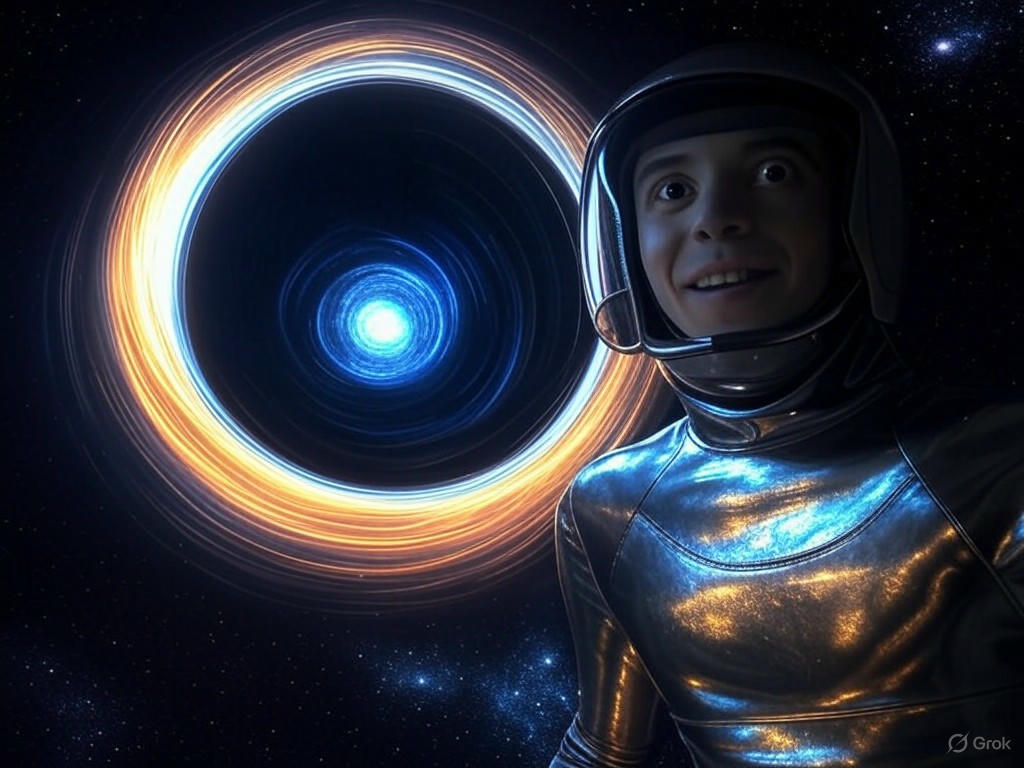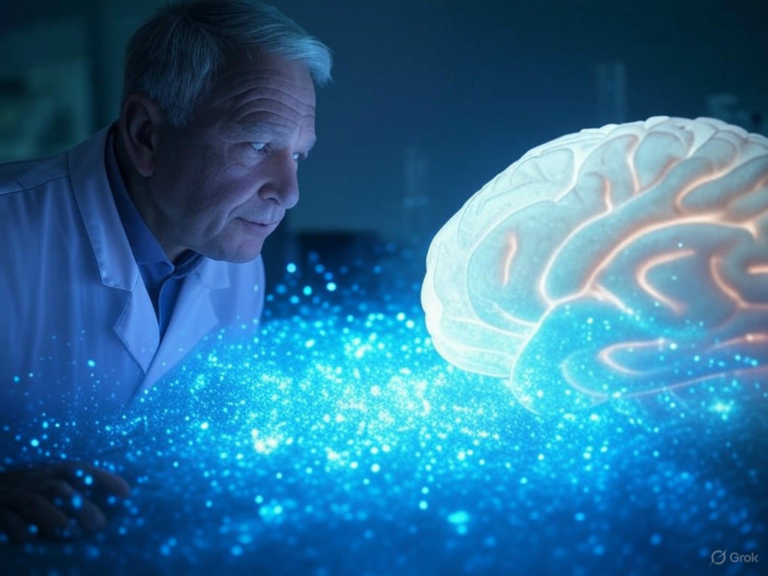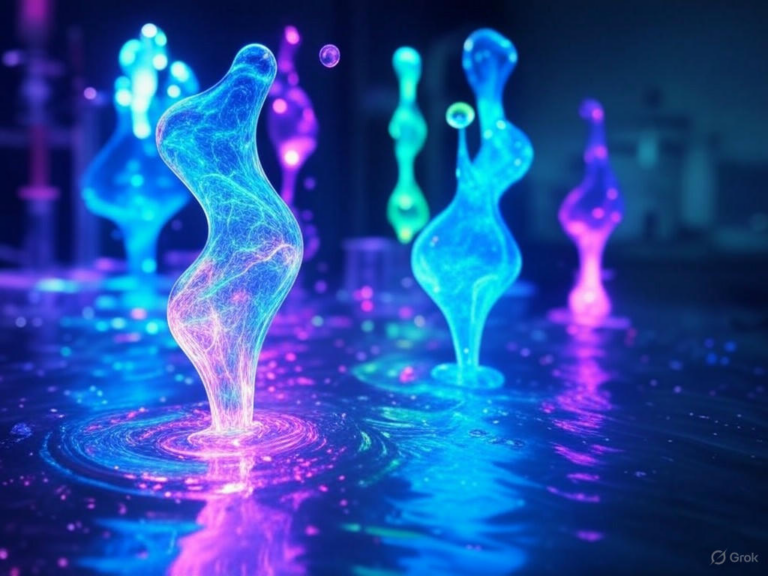
Quantum Black Holes May Eliminate Singularity Needs
The Fascinating World of Quantum Black Holes
Have you ever wondered what lurks at the heart of a black hole? For years, quantum black holes have challenged our deepest assumptions about the universe. These enigmatic objects, where quantum mechanics intersects with gravity, might finally resolve the long-standing puzzle of singularities, those points where physics seems to break down.
In classical physics, black holes end in infinite density, but quantum black holes propose a smoother alternative. This shift could transform how we view spacetime, making the cosmos a little less mysterious and a lot more predictable.
Why Black Hole Singularities Have Puzzled Scientists
At the center of traditional black holes, Einstein’s general relativity paints a picture of a singularity—a spot where gravity crushes matter to infinite density, defying the laws we know. This creates a massive headache for physicists, as it highlights the clash between general relativity and quantum mechanics.
Imagine peering into a black hole and finding that all the rules you rely on suddenly vanish. That’s the reality we’ve grappled with, and it’s why quantum black holes are gaining traction as a potential fix.
The Push for a Quantum Black Hole Paradigm
- Singularities aren’t just theoretical oddities; they lead to paradoxes like the black hole information loss, which contradicts quantum principles that demand information is always preserved.
- Many experts believe quantum black holes hold the key, introducing effects that could “smooth out” these extremes and restore order.
- It’s like upgrading from an old map to a GPS—quantum gravity might guide us through the uncharted territories of the universe without hitting dead ends.
Exploring Theories Behind Quantum Black Holes
Physicists are now building models that ditch the idea of singularities altogether, thanks to quantum black holes. These theories incorporate quantum corrections to gravity, creating black holes that behave more like stable cosmic entities rather than catastrophic endpoints.
For instance, one approach suggests quantum fluctuations could prevent matter from collapsing infinitely, offering a fresh perspective on these cosmic giants.
Innovative Models of Quantum Black Holes
- Regular Black Holes: These versions of quantum black holes replace the singularity with a dense but finite core, still featuring an event horizon that traps light.
- Black Hole Mimickers: Think of these as quantum black holes in disguise—they mimic the gravitational pull from afar but lack the problematic center, challenging astronomers to tell them apart.
- Examples from recent studies show how quantum black holes could form in the aftermath of massive star collapses, potentially observable through advanced telescopes.
How Quantum Black Holes Erase Singularities
Quantum gravity is the bridge that might connect Einstein’s universe with the quantum world, and quantum black holes are at the forefront. By tweaking general relativity to include quantum effects, we see space-time curvature change in ways that avoid infinite densities.
This isn’t just abstract math; it’s about making the universe more logical. Quantum black holes could mean that what we thought was a breakdown is actually a transition to a new state of matter.
Effective Strategies in Quantum Black Hole Theories
- Effective field theories adjust classical equations to reflect quantum influences, ensuring quantum black holes don’t spiral into singularities.
- At extreme scales, these modifications create a regular region instead of a point of no return, much like how foam cushions a fall rather than letting it hit concrete.
- What’s exciting is how quantum black holes might apply these principles across different dimensions, broadening our cosmic toolkit.
Pure Gravity Insights for Quantum Black Holes
Breakthroughs in quantum gravity show that quantum black holes can achieve regularity without needing exotic particles—just the core rules of quantum mechanics. This simplicity makes the theory more appealing and testable.
Consider a hypothetical scenario: If a quantum black hole formed from a neutron star collapse, its core might stabilize due to quantum effects, preventing the singularity we fear.
Quantum Black Holes: A Side-by-Side Comparison
To grasp the shift, let’s compare classical black holes with their quantum counterparts. This table highlights key differences, showing how quantum black holes could resolve age-old issues.’
| Feature | Classical Black Hole | Quantum Black Hole |
|---|---|---|
| Singularity | Present (infinite density, physics fails) | Absent (finite, smooth core) |
| Event Horizon | Always present | May vary, offering more flexibility in quantum black holes |
| Theoretical Consistency | Incomplete at the core | Enhanced by quantum corrections |
| Information Paradox Resolution | Unresolved, leading to potential information loss | Possible fix through quantum black holes’ effects |
Broader Impacts of Quantum Black Holes on Science
The implications of quantum black holes extend far beyond black holes themselves. They could restore full predictability to physics, ensuring no part of the universe escapes our understanding.
For example, if quantum black holes eliminate singularities, we might finally crack the information paradox, preserving data that classical models lose. This isn’t just theoretical—it’s a step toward unifying our view of reality.
- Quantum black holes might guide us in detecting subtle gravitational waves, offering clues to quantum gravity’s true nature.
- They could influence cosmology, helping explain the universe’s origins without infinite points of mystery.
- What if observing quantum black holes led to breakthroughs in energy technologies? It’s a thrilling possibility that keeps researchers motivated.
Obstacles and Exciting Paths in Quantum Black Hole Research
While quantum black holes sound promising, verifying them isn’t straightforward. We need real-world data, like unusual patterns in gravitational waves, to back up these models.
Challenges include distinguishing quantum effects from classical ones, but that’s what makes this field so engaging—it’s a detective story unfolding in space.
Future Directions for Quantum Black Holes
- Scientists are hunting for signs of non-singular cores in black holes, using data from observatories like those from NASA.
- Refining theories involves blending approaches from loop quantum gravity and string theory to better model quantum black holes.
- A key tip for aspiring physicists: Stay curious and follow projects like those tracking black hole mergers for fresh insights.
Wrapping Up the Quantum Black Hole Revolution
As we dive deeper into quantum black holes, the idea that singularities might be a thing of the past is truly exhilarating. This could be the key to merging quantum mechanics with gravity, answering questions that have baffled us for decades.
So, what do you think—could quantum black holes change everything we know? Share your thoughts in the comments, explore more on our site, or spread the word to fellow space enthusiasts. Let’s keep the conversation going!
References
- Phys.org. “Alternative Black Hole Without Singularity Due to Quantum Effects.” Link
- Space.com. “Black Holes May Obey the Laws of Physics After All, New Theory Suggests.” Link
- SciTechDaily. “No More Singularities: Quantum Gravity Could Finally Solve the Black Hole Mystery.” Link
- LiveScience. “Einstein’s Equations Need to Be Refined: Tweaks to General Relativity Could Finally Explain What Lies at the Heart of a Black Hole.” Link
- ScienceDaily. “Quantum Gravity Could Solve the Black Hole Mystery.” Link
- YouTube. “Black Hole Explained.” Link
- Wikipedia. “Black Hole Information Paradox.” Link
- Other Research. Various sources on black hole topics, as referenced in studies.
quantum black holes, black hole singularity, quantum gravity, regular black holes, Einstein’s equations, spacetime curvature, cosmic paradoxes, gravity theories, information paradox, quantum mechanics







